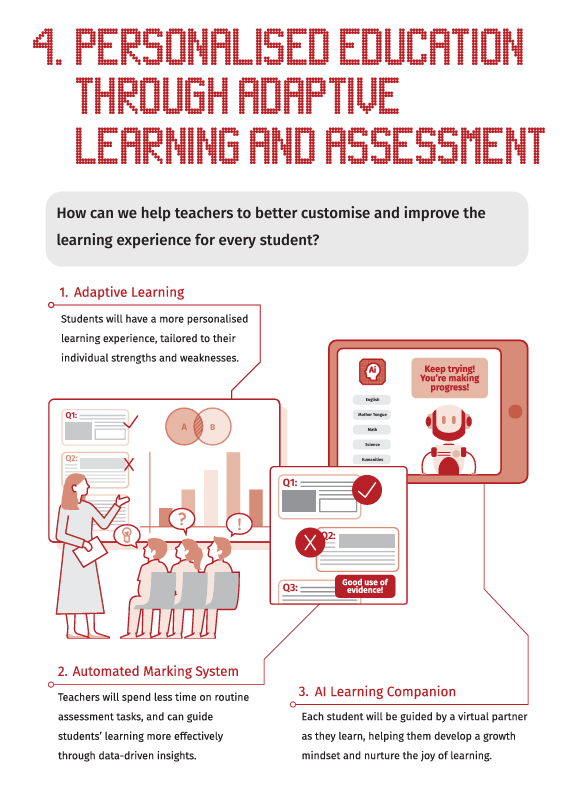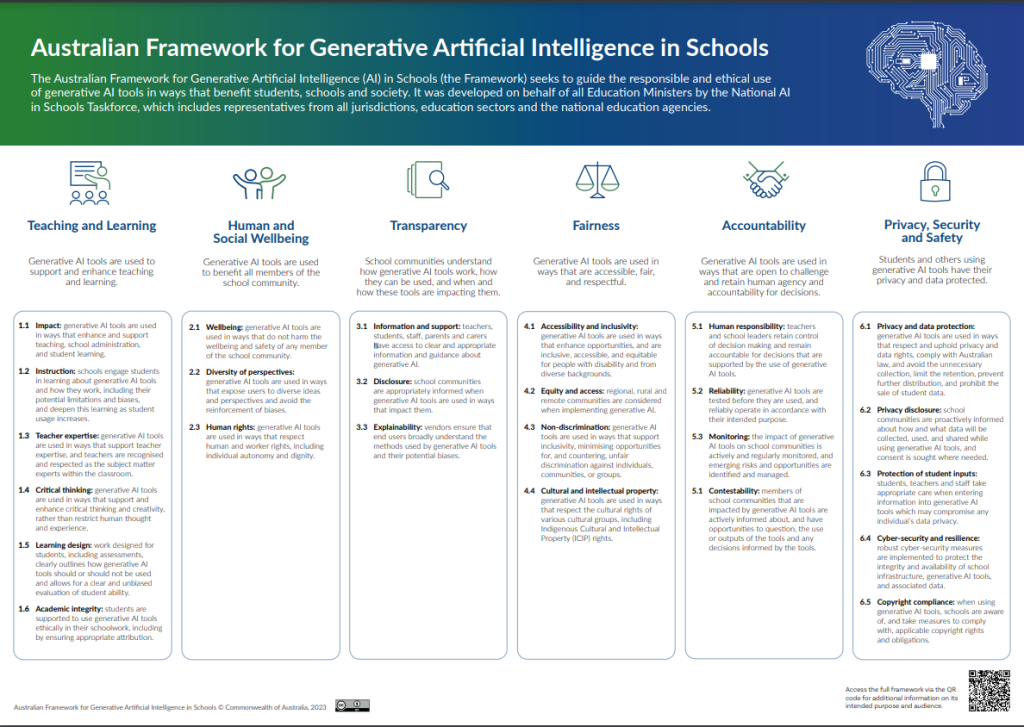
The New Zealand Tech Alliance is a group of independent technology associations from across New Zealand that work together to ensure a strong voice for technology.
Visit Tech Alliance

The New Zealand Tech Alliance is a group of independent technology associations from across New Zealand that work together to ensure a strong voice for technology.
Visit Tech Alliance
Susana Tomaz | STEAM Coordinator and Across School Lead for the Te Kāhui Ako o Pupuke
Teaching the basics brilliantly, phone bans, charter schools … How about AI? Why isn’t the AI in Education conversation happening?
As countries like Singapore, which ranked number one for Maths, Science and Reading in the PISA tests 2022, invest in an National Artificial Intelligence Strategy, and Australia forges ahead with frameworks and partnerships to integrate AI into education, the absence of a comprehensive AI framework for schools in Aotearoa becomes increasingly concerning.

Source: National AI Strategy Summary
A recent UNESCO global report published last year, emphasised the critical need for immediate governance and regulation of technology within the educational sector. The report advised nations to establish their own guidelines for the design and application of technology in education, especially in light of the swift advancements in artificial intelligence.
Australia was quick to act on that advice and in early December released the Australian Framework for Generative Artificial Intelligence (AI) in Schools ready to be implemented in schools for the start of the academic year (2024) to support teachers with the AIED integration.

Source: Australian Framework for Generative Artificial Intelligence (AI) in Schools
Also showcasing significant foresight and commitment by the Australian government in equipping educators and students with the means to ethically and safely enhance their AI competencies was the collaboration between the South Australian Government and Microsoft, which led to the development of “EdChat”. This innovation reflects a systems and future-thinking vision to tackle generative AI disruption head-on, empowering students to enter the world with the skills and knowledge they need to thrive in the era of AI.
Yet, in New Zealand, the pressing need for an AI framework in schools is evident as students navigate AI tools independently, often without guidance on the limitations or the ethical concerns they pose. This unregulated engagement leads to disparities in access and raises concerns about AI-generated content and its implications, including deepfakes technologies that have found their way into bullying tactics in schools.
Students are already using AI outside the classroom on their own terms. Cameron Moore, a 14-year-old who designed a pest trap that uses artificial intelligence to tackle the increasing threat of wallaby pests in Aotearoa’s native forests outside school hours, reaffirms the potential of youth to leverage AI for real-world problem-solving. This also highlights how those that do not have the infrastructure and support at home could be missing out. The lack of clear guidelines and AI literacy support for educators not only limits the effective incorporation of AI into educational strategies in the classroom but also leaves both educators and students underprepared for a future that is already unfolding. Moreover, there is a need for a tailored, culturally sensitive AI competency framework that resonates with the unique context of Aotearoa.
The key to successful AI integration in education lies in equipping teachers with the skills and knowledge to effectively use AI tools, critically assess their application in teaching and learning, and increase their productivity in administrative tasks, and lesson planning, potentially reducing burnout. This necessitates a focus on both ‘Learning about AI’ to understand its workings and implications, and ‘Learning with AI’ to leverage its potential in educational contexts.
“A Call to Action”
It’s time for a collaborative effort among policymakers, educators, the EdTech community, and wider community to prepare our students for a future that is already here, where AI is an integral part of their personal and professional lives.
Since June of 2023, I have been focused on learning about AI and integration of Artificial Intelligence in Education (AIED) tools, which started through my participation in a month hybrid programme delivered by the Asia-Europe Foundation (ASEF) on “Leading Change: Digital Transformation of Education in the Era of AI.” More recently, I have had the honour of being appointed a Fellow at the IRCAI (International Research Centre for Artificial Intelligence), which operates under the auspices of UNESCO. This affiliation places me within a dynamic network of educators and professionals committed to enhancing the application of Artificial Intelligence in education globally.
Recognising the transformative potential of AI in Education, the urgency to work in this space, and the opportunity to leverage on my IRCAI fellow connection, I have embarked on a Master’s program in Technological Futures at academyEx to delve deeper into the realm of AIED. I am eager to engage with the EdTech community for further learning and to gain valuable insights.If you would like to find out more about my Master’s project and be involved, please contact me through a LinkedIn message or email.